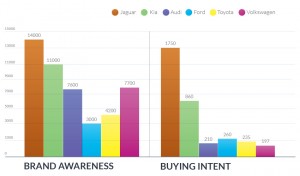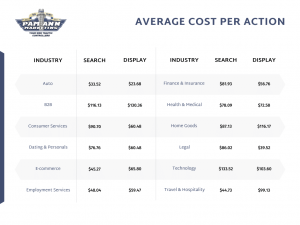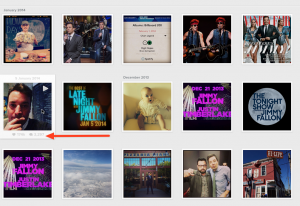— June 4, 2019
Do you want to become a tech mogul, or at least jumpstart your career in tech sales? This guide will help you understand the job hunting process in technology sales from both a job seeker’s point of view as well as the hiring manager’s. During my career I’ve hired, trained, and managed over 100 Sales Development Representatives (SDRs). But I’m the first to admit that I’ve committed many of the hiring and jobseeking sins I’m about to tell you about. But, hey, I did it so you don’t have to!
You are about to embark on a difficult yet necessary process for both you and your dream employer. Learn from other people’s missteps, apply these job hunting tips and you’ll be signing your pre-IPO stock option grants in no time!
A High-Level View of the SDR Hiring Process
Before we start our deep dive, take a moment and think of what the SDR hiring process is like from a 10,000-foot level. This is very similar in concept as it would be for a Venture Capitalist (VC) to invest in a seed round company. Typically, there’s no track record of success, so a VC—or in your case, a hiring manager—will evaluate many unknowns to try and gauge whether you have a low enough risk profile while exhibiting qualities for high potential.
In the end, both decisions are made with a limited amount of supporting data. The hope is that with enough training, the decision to invest or hire will create a high yield over time. Make no mistake, failure is expected in a significant number of these decisions, however, successful SDRs tend to have a very high impact, making this process a worthwhile investment.
Now that you understand the stakes, you want to take every possible effort to position yourself as the most obvious and risk-free candidate in the pool. If you follow this process, you’ll nearly guarantee success.
Figure Out Your “Why”
You need to be honest with yourself here. Why are you looking to start a career in sales? During phone screens and interviews, this is typically the first question I ask candidates. A well thought out answer to this question will almost always move you to the top of the applicant pool. Think of the above concept regarding mitigating hiring risk from unproven candidates. Sales is an excruciatingly difficult process to master and the transition period from training to jumping on the phones can be especially challenging. Without the right “why”, first-time salespeople fold faster than Superman on laundry day.
The best candidates will have a 100% clear answer for the why question. My top salespeople had done their homework, spoke with successful salespeople, read sales books, attended seminars, and more importantly, came prepared for the interview with a plan and a strategy.
Contrast this with the worst candidates. Anytime I hear “well, I’m not sure, it seems like a great company and this may be a way in the door,” they are nearly automatically disqualified. Why? Because sales development is a freaking tough job. Anyone who is not mentally prepared for the hardships of a sales career will churn out as soon as the ramp period is over. Being let go from a job is horrible for both the employee and employer. You want to make sure you land a job that you’ll be passionate about because you’ll need to pull from that inner strength when things get tough on the job.
Recently, we had a candidate who showed up at Invoca’s front door and asked to speak with the SDR hiring manager. I was thrilled at this initiative, however when asked why he wanted to work at our company he looked at me with a blank stare and said: “well, I need a job.” Ouch, thank you, next! The fact that you need a job is not a strong enough reason for any employer to extend you an offer.
Here are some questions to help you figure out your “why” in sales:
- Are you a competitive person?
- Have you been in a position where you are constantly rejected?
- If so, did you come back for more? Why?
- Do you have an outlandish belief in yourself?
- Do you have a high tolerance for risk?
- Do you have very high expectations for your income potential?
- Are you willing to grind day-in, day-out for a decade plus?
Do I Really Want to Work in Sales?
If you answered NO to two or more of these questions, I highly recommend you look at yourself in the mirror and ask if you want to get into such a difficult career. Dan Finnigan, CEO of Jobvite, once said that only 23% of all people have the right mental makeup to be a successful seller. After nearly 15 years in sales, I wholeheartedly agree and would go a level deeper. I would say only 2-3% of people have the ability to stay in sales long-term with an average career. The number of top salespeople who consistently make presidents club and earn millions per year is a tiny fraction of this 2-3%.
You may be thinking to yourself, ‘wow, this is tough, with such a high chance of failure, why would anyone in their right mind want to do this?’ The simple answer is that sales is one of the most meritocratic professions in the world. It doesn’t care which neighborhood you grew up in, what school you attended, or if you know any country club board members. If you’re willing to bet on yourself, work extraordinarily hard, and make a commitment to figure out creative ways to add tremendous amounts of value to your customers, then you’re on the right track.
At this point, I anticipate we have lost half our readers. But that’s good. If you made it this far and are still interested, then a career in sales could be the right move for you.
How to Get Your SDR Job Search Started
Let’s get going, however before you submit any applications or write a single cover letter, you must set your house in order. Here are a few things you absolutely MUST do before you speak with any potential employer.
Clean up your Social Presence
Social media is now a critical part of the candidate screening process. You must learn to use professional media like LinkedIn (and to some extent Twitter), and protect your personal profiles such as Facebook and Instagram to avoid disqualification.
Most modern companies use an applicant tracking system (ATS) to help them manage the hiring process. This includes a repository of applications, candidate screening, interview scorecards, and onboarding logistics. In the candidate screening module of the ATS, there are many built-in tools to help the hiring team identify all the social media profiles of the applicant. This can work to your advantage or seriously backfire. Here’s what you need to do on each platform:
If you haven’t already, set up a profile. Make sure it’s as complete and detailed as possible. LinkedIn has become the modern-day business card and this is the medium where you showcase your professional qualities. Make sure you have a professional looking headshot, write a personal summary, and include media such as projects you have completed or even school projects you are proud of. Here’s a great LinkedIn profile to a top-performing SDR which you can use as your guide.
Facebook & Instagram
This section is easy. Set these to PRIVATE and delete any posts or profile pictures which can be considered obnoxious or offensive. When job hunting, there is very little to gain from having public profiles and a lot to lose. True story: I once had an applicant whose FB profile photos were mostly photos of him in his underwear. Think of a 90’s Calvin Klein ad but taken in a messy college dorm room. Besides giving me a good laugh, the only thing this candidate received was the cold, automated rejection email.
This is the least used platform by millennials, but if you are a regular twitter poster, make sure you delete any highly controversial tweets. Even if the HM agrees with your angry rants about the president, they likely cannot hire someone who has a compromised social media presence for a customer-facing job.
How to Prepare Your Resume
Now that you’ve cleaned up your social presence, it’s time to polish your resume. In this section, I will cover some of the must-dos and share some of the most common mistakes I see applicants make.
Resume Musts
- Resumes should be ONE page long. No more, no less. It’s your job to figure out how to compress all your experience into a concise format. Three-page resumes go straight in the trash.
- Quantify your accomplishments. An HM is not looking for your job description, but rather what you got done. For example, instead of saying “Worked at the University Intramural league office”, you can say: “Increased enrollment in intramural leagues by 50% in a three-year period by launching campaigns targeting students who had previously expressed interest but had not yet registered”. If you fail to quantify accomplishments, this is usually interpreted as the candidate who is a clock puncher and not focused on driving results.
- Opinions vary on listing interests, but I’ve never been a fan. They just take away from the larger message of your accomplishments. You’re working with very limited real estate in your resume, so save this for the in-person interview.
Resume Nice-to-Haves
- Hire a resume editing service: I get it, you just got out of school and burning $ 150 on something you can do yourself seems like a waste of money. Trust me, it’s not. A resume is a reflection of yourself and if you’re submitting average work, you’ll be perceived as an average candidate.
- I don’t recommend using the standard MS Word resume template. Microsoft has done some upgrades here recently, but I still see a steady stream of subpar resumes using this format.
Here’s an example of a truly innovative resume. This was created by a third party company to showcase their resume making ability and they used Marisa Meyer, CEO of Yahoo as their test case.
Required Reading for Future SDRs
If you were to build a piece of IKEA furniture, chances are you may be able to figure it out without reading the instructions, but it would take you 3X longer and the end result could be disastrous. Interviewing for a sales role without the proper base of knowledge is the same thing. There’s a chance someone will hire you without putting in this work, but you will have spent way more time interviewing and potentially burn great opportunities as opposed to simply taking a full day to educate yourself with some of the top sales development training materials. Here are some books I recommend to every candidate during the interview process and prior to their first day on the job:
Sales Development by Cory Bray & Hilmon Sorey – This book breaks down every aspect of the SDR role and serves as a step-by-step manual on how to become a successful SDR.
The Sales Development Playbook by Trish Bertuzzi – This book will help you see the bigger picture, making you a star in the eyes of your manager. This book is geared 50% to the SDR and 50% to the manager, so don’t worry if some stuff goes over your head. The 50% that is applicable to the SDR is more than worth it.
The Challenger Sale by CEB – This is THE defacto textbook on selling disruptive solutions. It does not teach step by step techniques but rather the framework and mindset required to sell expensive products or solutions to an organization.
Predictable Revenue by Aaron Ross – This is the equivalent of a ‘64 Ford Mustang, meaning this is the original piece of content that brought the world of sales development to the forefront. Tons of insight on how to be successful as an SDR, plus I found it very fun to hear some of the stories about the early days at Salesforce.
Even if you only read ONE of the above books, you’ll be miles ahead of your competition. If you only remember one thing from this entire article, this section should be it. Feel free to send me a thank you note later.
Starting Your SDR Job Hunt
Enough theory, let’s start looking for jobs! The good news is that the SDR role is exploding in popularity because it accomplishes two things: 1. It specializes prospecting efforts, allowing senior salespeople to only speak with qualified prospects. 2. it acts as a recruiting and training ground for other more senior roles in the organization.
Currently, there are over 1,000 open SDR positions in the Bay Area alone. Should you apply to all of them? Not unless you want to waste a lot of time. Try this approach instead:
- Start with your organic list of your 20 dream companies. Chances are if they’re growing quickly, they likely have SDR jobs open.
- Look through Indeed, Glassdoor, and LinkedIn. GD & LI are expensive job boards, so if you see a job here, you will know that companies are willing to make a serious investment into their SDR team.
- Learn about the company’s culture in advance by reading their company blog or Glassdoor reviews.
- When looking at Glassdoor reviews, look for patterns, mostly good or mostly bad. There will always be some bad reviews, and these typically can come from the worst employees, so take those with a grain of salt. Some companies are inclusive and cheery like Invoca, others like Tesla are all about performance and high pressure. Pick the environment where you feel you will thrive.
- Hunting for a job is very similar to hunting for a deal. You have to build a pipeline of opportunities and the more successful you are here, then the more complicated your job tracking will become. I recommend you sign up for a free trial of Salesforce (you will need to know how to use a CRM as an SDR anyway) and use it to track your various applications and progress you make with each company. If Salesforce is too complicated, a simple spreadsheet with companies, contacts, dates, and statuses will do.
If you read all this way, you’re probably ready to put rubber to the road and start applying for sales jobs. It might not be quick, it won’t be easy, and there will be bumps in the road. Take it from me—I’ve struggled mightily during my career and have taken these lessons to help build one of the top Sales Development Organizations in all of SaaS. My team currently consists of 25 hand-picked and trained SDRs who will become leaders at Invoca or will move on to other companies to accomplish great things. I measure my success not only by the results our team achieves but by the number of people I am able to promote.
Business & Finance Articles on Business 2 Community
(71)






